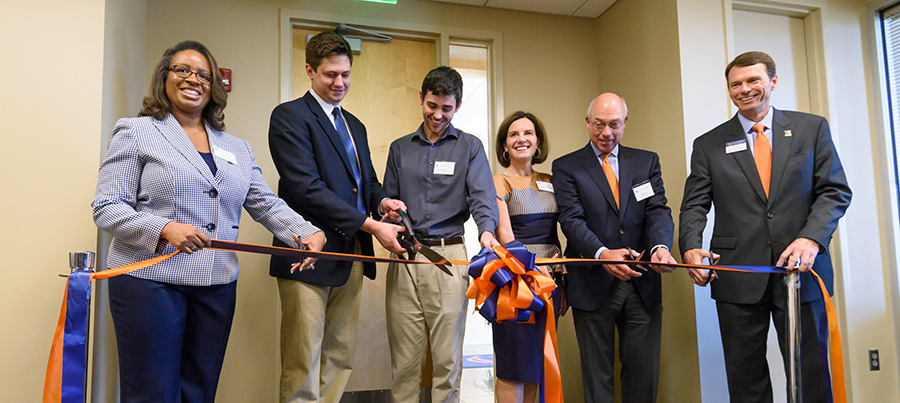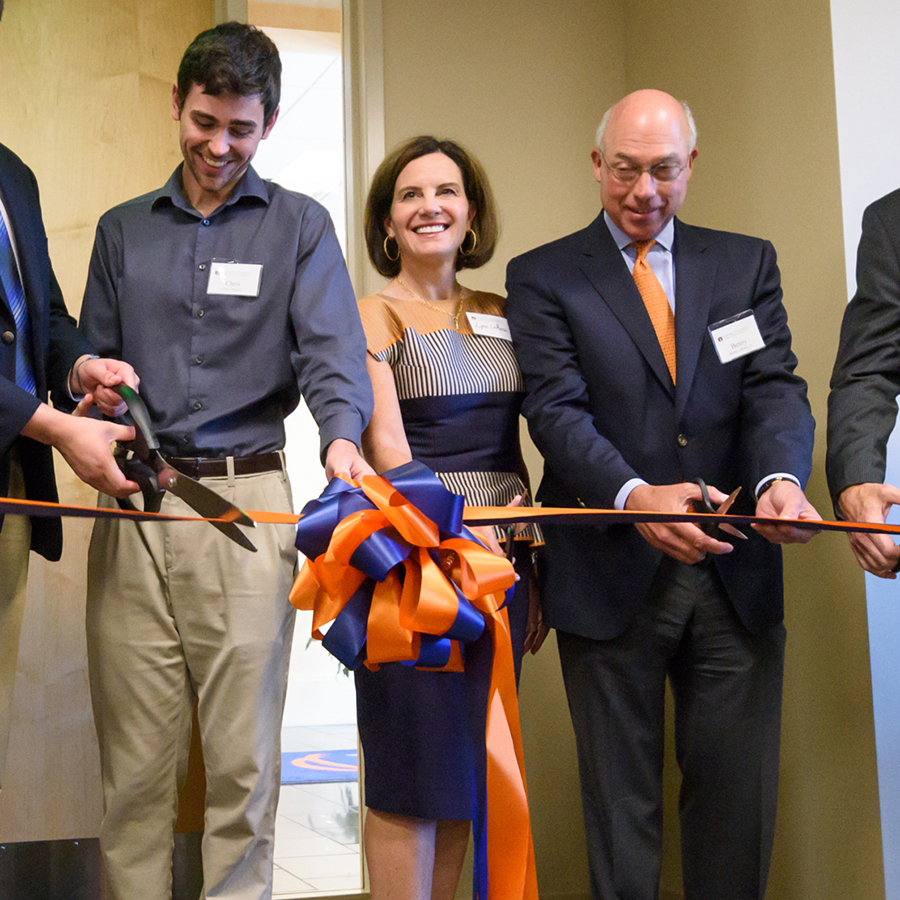
Athletes exercise not only because they enjoy it, but also because they want to reach peak physical condition in order to be the best at their respective sport. But there is only so much athletes can achieve on their own at the gym. A strength and conditioning program, on the other hand, provides the structure and mentoring necessary to reach their full potential.
The same thing can be said about young entrepreneurs. The Tiger Cage Accelerator and Incubator—a 2,800-square-foot facility at the Auburn Research Park—helps students bring their business ideas to life and flex their entrepreneurial muscles.
“Past students have started some incredible companies such as Bellhops and Back Forty Beer Company. But with the structure and mentoring provided via the accelerator and incubator, student entrepreneurs will be better positioned to maximize their achievements and to do so more quickly,” says Dave Ketchen, Lowder Eminent Scholar in Management and Research Director of the Lowder Center for Family Business and Entrepreneurship.
Entrepreneurship has become much more than a major at Auburn University. Through growth of the annual Entrepreneurship Summit and Tiger Cage student business pitch competition—and now the Accelerator and Incubator—one could say the university is cultivating an entrepreneurial ecosystem.
Today, students with business ideas moving forward—some who have participated in the Tiger Cage and some who have not—have an incubator to help their businesses grow.
“What we wanted to do was provide an open, collaborative environment for all Auburn students to work on their business ideas and provide some structure for our student entrepreneurs,” says LaKami Baker, managing director of the Lowder Center for Family Business and Entrepreneurship. “By providing formal space for the students, we help them legitimize their businesses while providing some guidance so they can advance through the different stages of the entrepreneurship process.”
The facility, which opened in October 2017, has already made an impact. Four successful startups now call it home.
“The accelerator gives me 24/7 workspace access in an excellent location,” says Harrison Evola, CEO of FetchMe, a mobile app-enabled grocery and food delivery service. “I can meet with employees, and we have more than 15 ‘Fetchers’, so that is no easy task. I am able to print, have meetings and interview—all in a new, beautiful facility.”
Chris Maurice, a senior finance major in the Harbert College who co-owns digital currency exchange business Yellow Card Financial, believes programs and facilities like the Tiger Cage Accelerator and Incubator will create a boon for future Auburn entrepreneurs.
“It’s just a matter of time until Auburn is at the forefront of schools here in the United States that you come to because you know that you can do something big on the world stage,” says Maurice, whose team won $25,000 last April at eFest—a national business pitch competition in Minneapolis, Minn.—and recently finished second in the national finals of the Global Student Entrepreneurship Awards in Dallas, Texas. “As we continue to promote entrepreneurship around the world, we’ll bring in more talent and continue to grow. Maybe we’ll have the next (Mark) Zuckerberg.” The Accelerator and Incubator received a financial shot in the arm last December when 1982 Harbert College alumnus Benny LaRussa and his wife, Lynn, created a permanent $1 million endowment toward the programs. The endowment will double as part of Raymond Harbert’s challenge match initiative, increasing the total to $2 million. The gift will support the development of a summer accelerator program, which will help Auburn student entrepreneurs fine-tune their business concepts, perform customer discovery, validate business models, and attract investors. The program will also include weekly lectures, team pitches, and mentorship.
“If we are trying to nurture students to become successful entrepreneurs, we have to work with them through the whole cycle,” says Lou Bifano, Director of Entrepreneurship Strategy at Harbert College. “We start out with education and training. We provide them with resources through the incubator and accelerator program. We give them access to early-stage funding with business plan competitions. But we don’t want to dump them out and say, ‘Good luck’ once they graduate.”
Bifano stresses the importance of establishing relationships within the business community and local investors so Auburn’s young entrepreneurs can find the resources they need to take the next steps in the progression of their companies. “Otherwise, they are going to leave and move to an area where they can access those things,” he says. “We will have invested in their success, but we will not have had the opportunity to benefit from their success in terms of job creation and economic development.”

